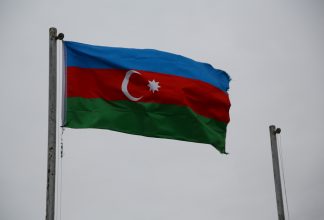Blogger Sentenced to 9 Years on Trumped-Up Drug Charges
Rashad Ramazanov, Azerbaijani blogger who criticised the authorities on Facebook and YouTube, was sentenced to nine years in prison on trumped-up drug charges. Ramazanov wrote under the pen name Rashad Hagigat Agaaddin.
Rashad Ramazanov was arrested on 9 May 2013 and taken to the Organized Crime Department, where officials claimed to have found nine grams of heroin in his pocket. He denied the charges and insisted that the drugs had been planted on him. The investigation was done in violation with local criminal procedure as well is a direct violation of the International Covenant on Civil and Political Rights (ICCPR, article 14.3) and of the European Convention on Human Rights (ECHR, article 6.3 (c)), to both of which Azerbaijan is a party.
By the local criminal law, Ramazanov should have been transferred to Investigative Detention Center within 24 hours of his detention for pre-trial, while he was kept at the Ministry of Interior during the first 11 days. Ramazanov told his lawyer that he had been beaten in the car on the day of his arrest and then during the interrogations. He said the interrogators beat him not to extort confessions, but to punish and humiliate him. Requests to undergo medical examination for him were ignored by investigators, while the only witnesses in his trial were the officials who detained him. The authorities did not allow the defendant to have his lawyer present at the court hearings. Instead, state-appointed lawyers participated in the hearings.
“The Azerbaijani regime has given several famous dissidents long prison terms for alleged drug trafficking recently. This is a clear message to other voices who dare be critical,” said Joanna Kurosz, Eurasia Programme Director Civil Rights Defenders. “The authorities should immediately release Rashad Ramazanov, give him a fair trial and investigate his allegations of ill-treatment”.
In a recent case, an independent news editor Hilal Mamedov was sentenced on drug charges. Mamedov is also believed to be punished for his critical stance toward the government.
Freedom of expression had been further eroded in the run-up to the October 9 presidential poll, and ruthless persecution of dissent continues after the elections. Azadliq and Yeni Musavat, two most popular opposition dailies, had to go out of printing after they were put on the brink of financial survival because of the authorities persecution.


